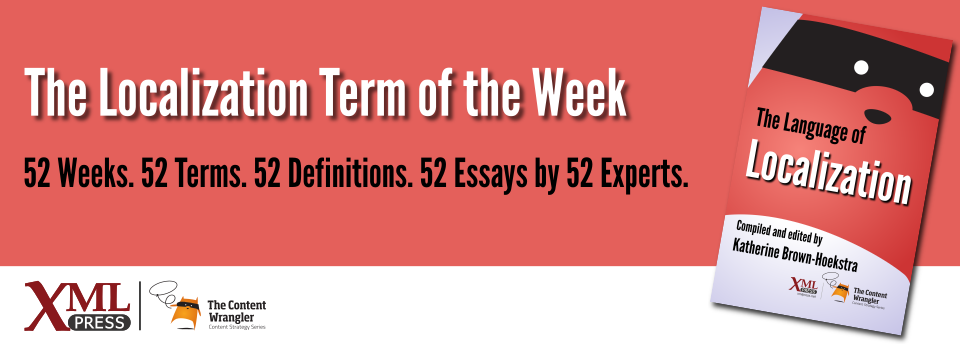What is it?
A W3C (World Wide Web Consortium) standard that provides concepts for the automated creation and processing of multilingual web content.
Why is it important?
With ITS, processes can be automated with standardized metadata called ITS data categories. Example processes include translation package creation, machine translation, and quality review.
Why does a technical communicator need to know this?
ITS saves time, increases quality, and allows for automation and other ways to process multilingual content. Because ITS makes it easier for localization tools to work with information in source content, using it can save time and expense, for example, when integrating with content production tools (CMS, XML tools, etc.).
ITS provides data categories such as Translate, Terminology, or Elements within Text, which help to configure machine translation (MT) pre-processing, post-processing, or the MT engine itself. These categories can improve quality.
New application scenarios are also possible. For example, the Text Analytics data category allows you to annotate content with lexical or conceptual information.
In this way, the localization specialist becomes a content enrichment architect and localized content gets additional value, for example, with marketing departments and for search engine optimization.
A key aspect of ITS is that the ITS data categories are available, at least partially, in standard content formats such as DITA, DocBook, and HTML5 and in the upcoming XLIFF 2.1 standard for localization interchange. Because these categories are already familiar, it is easier to learn the new uses of the ITS. In addition, out-of-the-box tool support is growing for both open source solutions and commercial products[W3C ITS].
References
- [W3C ITS] W3C site for Internationalization Tag Set: Site provides the latest version of the standard.

